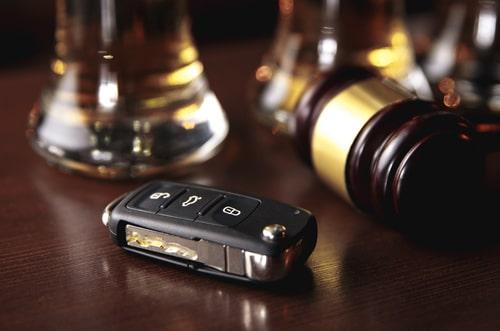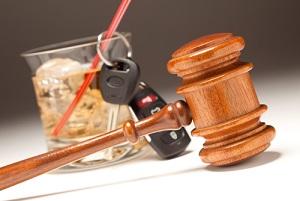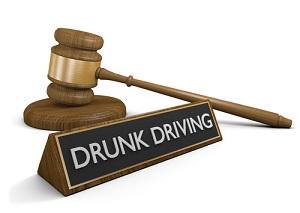Recent Blog Posts
New DUI Diversion Law Causes Controversy
 A new law that allows judges to grant diversion to those convicted of misdemeanor driving under the influence (DUI) has been causing confusion in the California court system, according to The Press-Enterprise. Critics of the measure say judges are applying it inconsistently, often granting diversion to defendants with means while poorer defendants are punished with criminal penalties.
A new law that allows judges to grant diversion to those convicted of misdemeanor driving under the influence (DUI) has been causing confusion in the California court system, according to The Press-Enterprise. Critics of the measure say judges are applying it inconsistently, often granting diversion to defendants with means while poorer defendants are punished with criminal penalties.
Assembly Bill 3234
Assemblyman Phil Ting, a Democrat from San Francisco, introduced Assembly Bill 3234 as part of a criminal justice reform package designed to, among other things, give judges the discretion to place first-time DUI offenders into a diversion program instead of jail.
Ting said the measure was modeled off of a program that proved successful in Los Angeles County. Since judges could grant diversion, he explained the county court system had 2,000 fewer jury trials, which saved some $12,000 per day. Also, according to Ting, those who completed a diversion program were less likely to re-offend.
Project Warns Of DUI Consequences Ahead Of Labor Day Weekend
 Ahead of Labor Day weekend, a multinational alcohol company launched a virtual campaign to warn Californians who plan on partying over the weekend about the dangers of drinking and driving. Diageo North American partnered with the United Nations Institute for Training and Research to launch the “Wrong Side of the Road.”
Ahead of Labor Day weekend, a multinational alcohol company launched a virtual campaign to warn Californians who plan on partying over the weekend about the dangers of drinking and driving. Diageo North American partnered with the United Nations Institute for Training and Research to launch the “Wrong Side of the Road.”
Wrong Side of the Road
The educational project includes a website that hosts a series of videos in which people who have been convicted of driving under the influence (DUI) share their experiences. Many of the individuals describe the social stigma they feel as a result of their DUI conviction.
Diageo, which owns Johnnie Walker, Smirnoff, Captain Morgan, Guinness, and dozens of other beverage brands, explained they wanted to show how catastrophic it could be not just for you, but the people in your life if you decide to drink and drive.
The company said nearly 26 percent of traffic accidents deaths in California result from impaired driving. More than one-third of all alcohol-related traffic deaths occur during Labor Day weekend.
Should I Answer Police Questions During a DUI Stop?
 Most people are honest, especially when they talk to a police officer, but that police officer might not be as forthright about his or her intentions. When a police officer suspects that a driver is driving under the influence (DUI), he or she may ask questions to find evidence or clues of drunk driving. DUIs and traffic infractions result in more injuries and death than any violent crime, but also DUIs are incredibly hard to prove.
Most people are honest, especially when they talk to a police officer, but that police officer might not be as forthright about his or her intentions. When a police officer suspects that a driver is driving under the influence (DUI), he or she may ask questions to find evidence or clues of drunk driving. DUIs and traffic infractions result in more injuries and death than any violent crime, but also DUIs are incredibly hard to prove.
When a police officer pulls you over and suspects that you are under the influence of alcohol, they will ask you what seems like common, getting-to-know-you questions, but in reality, what they are doing is phishing for information. The police officer may be gathering details and building the foundation of a DUI case.
While it seems logical to stay silent during this exchange, the honest person might feel like they are trying to hide something. It begs the question: When should you answer questions and when should you stay quiet during a DUI stop?
What Signs Do Cops Look for in a DUI Driving?
 In a DUI case, the reason why a police officer pulls you over plays an important role. Identifying a traffic violation gives the officer probable cause to stop you in the first place. The officer can gather further evidence of drunk driving. How do police officers determine that there is probable cause for a DUI stop?
In a DUI case, the reason why a police officer pulls you over plays an important role. Identifying a traffic violation gives the officer probable cause to stop you in the first place. The officer can gather further evidence of drunk driving. How do police officers determine that there is probable cause for a DUI stop?
The short answer is nobody knows you are driving drunk — not even police officers — just by the traffic violation. However, police are trained to look for specific behaviors to single out possible drunk drivers and follow them until they see a traffic violation to build a DUI case.
A Vehicle in Motion
One of the first lessons in DUI training is called “Vehicle in Motion.” The lesson is used to train police officers how to identify driving behaviors that could lead to DUI stop, and how to observe and document the behaviors for a DUI case. The training is provided by the National Highway Traffic and Safety Administration (NHTSA), an agency managed by the federal Department of Transportation.
Applying for a Restricted Driver’s License After a DUI Arrest
 In an effort to keep unsafe drivers off the road, California law typically requires a driver’s license suspension for a person who is arrested or convicted for driving under the influence (DUI) of alcohol. However, in a world that frequently relies on personal vehicles for transportation, the loss of driving privileges can be a major inconvenience and even a cause of financial hardship. If your license has been suspended for DUI-related reasons, you may be able to mitigate some of the consequences by applying for a restricted license.
In an effort to keep unsafe drivers off the road, California law typically requires a driver’s license suspension for a person who is arrested or convicted for driving under the influence (DUI) of alcohol. However, in a world that frequently relies on personal vehicles for transportation, the loss of driving privileges can be a major inconvenience and even a cause of financial hardship. If your license has been suspended for DUI-related reasons, you may be able to mitigate some of the consequences by applying for a restricted license.
Restricted Licenses for California DUI Arrest Suspensions
In California, a DUI conviction is not necessary for a driver’s license suspension to go into effect. Rather, you could find your license suspended for four months if a chemical test shows that you had a BAC of at least 0.08. You may be able to contest your suspension with the help of an attorney at an administrative DMV hearing, but if the suspension goes into effect, you will be unable to legally drive under any circumstances unless you obtain a restricted driver’s license.
How Does an Underage DUI Conviction Affect Young Drivers in California?
 A DUI conviction can have lasting consequences for anyone, but it can be especially hard for drivers under the age of 21 who are just beginning their adult lives. If you or your child has been charged with an underage drinking offense in California, it is understandable that you would be concerned about the outcome of your case. An attorney can inform you of the possible consequences and prepare a defense that may help you avoid them.
A DUI conviction can have lasting consequences for anyone, but it can be especially hard for drivers under the age of 21 who are just beginning their adult lives. If you or your child has been charged with an underage drinking offense in California, it is understandable that you would be concerned about the outcome of your case. An attorney can inform you of the possible consequences and prepare a defense that may help you avoid them.
Penalties for Underage DUI
In California, drivers under the age of 21 who are convicted of an alcohol-related offense can face both administrative and criminal penalties, depending on the circumstances. The severity of the consequences depends in large part on the driver’s blood alcohol concentration (BAC) as measured by a preliminary breath test or chemical test.
For example, underage drivers with a BAC of at least 0.01 are subject to a one-year suspension of their driver’s license according to California’s zero-tolerance law, but this is likely to be the only penalty they face. With a BAC of at least 0.05, the driver can also be assessed a fine, and if they are at least 18 years old, they can be ordered to complete a DUI education program before having their license reinstated. Notably, neither of these charges will result in jail time.
How Long Does a California DUI Conviction Stay on Your Record?
 If you are convicted of driving under the influence (DUI) in California, you face many serious penalties in the short term. Your sentence could include fines, jail time, probation, driver’s license suspension, court-ordered community service, DUI school, and attendance at AA meetings. However, you may also be concerned about the long-term effects of a conviction, including a criminal record that can impact future sentencing and employment and housing opportunities. It is important to understand how your criminal record can affect you, as well as whether you have any options to remove a DUI conviction from your record.
If you are convicted of driving under the influence (DUI) in California, you face many serious penalties in the short term. Your sentence could include fines, jail time, probation, driver’s license suspension, court-ordered community service, DUI school, and attendance at AA meetings. However, you may also be concerned about the long-term effects of a conviction, including a criminal record that can impact future sentencing and employment and housing opportunities. It is important to understand how your criminal record can affect you, as well as whether you have any options to remove a DUI conviction from your record.
Expunging a DUI Conviction in California
A DUI conviction is likely to remain on your record in some form for the rest of your life. However, under some circumstances, it is possible to have a DUI conviction dismissed, preventing it from affecting certain aspects of your life.
What Are the Jail Alternatives for DUI Convictions in California?
 If you are arrested, charged, and then convicted with a driving under the influence (DUI) offense, that does not necessarily mean you will be serving jail time. In California and many other states, there are plenty of alternatives to jail time, some of which might even give you an opportunity to not only serve your time but also improve your life and your community.
If you are arrested, charged, and then convicted with a driving under the influence (DUI) offense, that does not necessarily mean you will be serving jail time. In California and many other states, there are plenty of alternatives to jail time, some of which might even give you an opportunity to not only serve your time but also improve your life and your community.
A Brief Overview of Alternatives to Jail Time in California
From a practical perspective, alternatives to jail time are meant to manage overcrowding in prison and the high cost of jailing people, but in a way, these alternative programs also help the convicts as well. In California, in particular, there are many alternatives to jail time for DUI convictions if approved by the courts. A few of the most common alternatives include:
- Mandatory AA meeting attendance or similar programs—Court-ordered attendance at Alcoholics Anonymous (AA) meetings or other alcohol abuse education classes aim to replace or supplement punishment with rehabilitation. Essentially, the goal with these is to educate you in such a way that you get the help and treatment you need to improve your life and never face another DUI. In addition, a DUI convict might be able to attend any of the following other alternatives similar to an AA program:
How Is a DUI DMV Hearing Different from a DUI Court Proceeding in California?
 There are many facts about the California DUI process that distinguish it from other states; relative to some of those states, California’s legal proceedings are slightly different. In California, there are two legal proceedings when dealing with the aftermath of a driving under the influence (DUI) charge. They are the administrative hearing at the DMV and the actual criminal court proceeding. It is worth knowing how these two are different so that you know what to expect at every step in the process. The following is a brief summary of these two legal proceedings.
There are many facts about the California DUI process that distinguish it from other states; relative to some of those states, California’s legal proceedings are slightly different. In California, there are two legal proceedings when dealing with the aftermath of a driving under the influence (DUI) charge. They are the administrative hearing at the DMV and the actual criminal court proceeding. It is worth knowing how these two are different so that you know what to expect at every step in the process. The following is a brief summary of these two legal proceedings.
The DMV Hearing vs. the Court Proceeding for a DUI in California
These two legal proceedings are very different, and their differences take root in their ultimate goals for the alleged offender. The DMV Administrative Hearing is just that—administrative. This means it is strictly meant to handle the administration of your driver’s license (i.e., whether you will have your driver’s license suspended).If you do not request a DMV Administrative Hearing within 10 days, you will be given an automatic driver’s license suspension after 30 days.If you choose to go through with the hearing, you could choose to represent or yourself or you could hire an attorney to represent you. Note that the DMV never appoints a public defender for administrative hearings.
What You Should Know About Out-of-State DUI in California
 There is little doubt that California, at least pre-COVID and also before the major, frequent fires, has always been the place to be when traveling within the U.S.—you might be there to check out Hollywood and all the stars, or you could be there to savor some lush libations in wine country throughout Napa. Whatever your reasons for traveling here as an out-of-state visitor, odds are you will probably need a car or a rental. Much of the most popular spots in California are not exactly within walking distance of wherever you might be. Residents know this—and have known this—for years. So if you do end up driving a lot while here as a nonresident, you should know that when it comes to a driving under the influence (DUI) charge, things can get complicated. Here is why.
There is little doubt that California, at least pre-COVID and also before the major, frequent fires, has always been the place to be when traveling within the U.S.—you might be there to check out Hollywood and all the stars, or you could be there to savor some lush libations in wine country throughout Napa. Whatever your reasons for traveling here as an out-of-state visitor, odds are you will probably need a car or a rental. Much of the most popular spots in California are not exactly within walking distance of wherever you might be. Residents know this—and have known this—for years. So if you do end up driving a lot while here as a nonresident, you should know that when it comes to a driving under the influence (DUI) charge, things can get complicated. Here is why.
California Is Serious About Out-of-State DUI Due to Interstate Agreements
Do not think that being in a new place for a short while disqualifies you from severe consequences with regards to DUI charges; in fact, in California, out-of-state DUI is a serious offense that could result in major punishments in both California and your home state. The reason for this is mostly due to an interstate agreement about road safety:
 415-729-7300
415-729-7300




